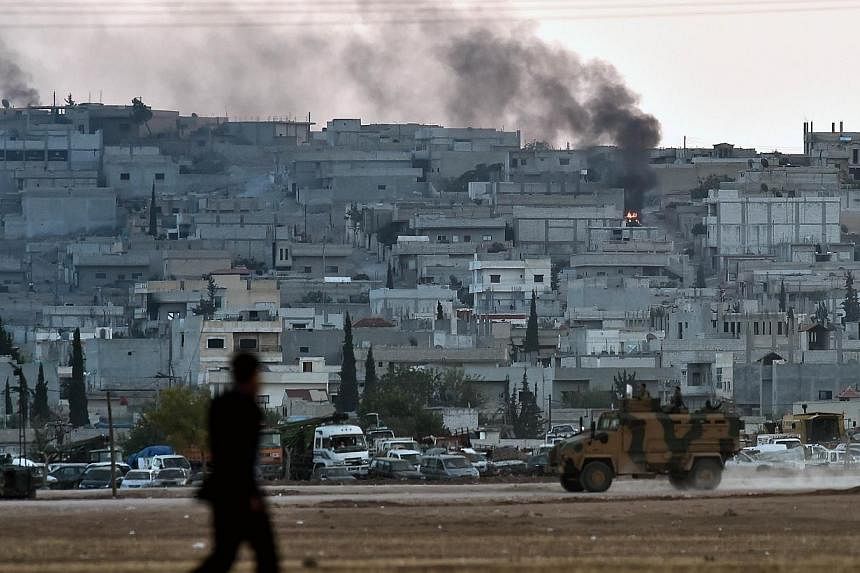A LACK of ground support for air strikes launched by the United States-led coalition against the Islamic State in Iraq and Syria (ISIS) extremists, and Turkey's reluctance to step in militarily, have all but sealed the fate of Kobane.
The three-week assault by ISIS on the key Kurdish town on the Syria-Turkey border has cost hundreds of lives and forced thousands to flee their homes, as Turkish President Recep Tayyip Erdogan acknowledged that Kobane was "about to fall" in this increasingly broader regional war in the Middle East.
If Kobane falls, Turkey will have ISIS - notorious for its cold-blooded cruelty - on its doorstep. But President Erdogan insists he would approve Turkish intervention only if his conditions are met by the US.
Here are six things about the battle for Kobane.
1. Why is Turkey hesitant?
It is wary of the Kurdish-nationalist militias defending Kobane. The Democratic Union Party (PYD), an armed group that runs northeastern Syria's Kurdish populated region as an autonomous enclave, is closely connected to the Kurdistan Workers' Party (PKK), a rebel group that has fought a 30-year-long insurgency for greater Kurdish autonomy in Turkey.
Mr Hugh Pope, International Crisis Group's deputy programme director for Europe and Central Asia, said any unilateral action - that is without explicit Nato backing - in Syria against ISIS involving Turkish troops could leave the country badly exposed
2. What does Turkey want?
The government has won parliamentary approval for military intervention against ISIS, but it has yet to announce any firm plans for action despite the advance of the militants on its doorstep.
Turkey, a Nato member that shares a 900km border with Syria, says the scope of the campaign in Syria should be broadened to seek to remove Syrian leader, Bashar al-Assad, from power. It has sought a no-fly zone in northern Syria, which would require the coalition to take on Assad's air force as well as ISIS militants, a move Washington has not agreed to.
In fact, in its bid to hasten Assad's downfall, Turky supported extremist groups inside Syria. The results were catastrophic: Some of the military equipment now in the hands of ISIS came through supplies which crisscrossed Turkish territory; most of the foreign volunteers now fighting with ISIS came through Turkey, with Turkish border guards pretending not to notice.
3. What has Turkey done so far?
UN Syria envoy Staffan de Mistura said Ankara had been generous in receiving refugees from Kobane. An estimated 180,000 people have fled into Turkey from the Kobane region following the ISIS advance.
4. Why does ISIS want Kobane?
Kobane would be a major prize for the militants, as it would give them unbroken control of a long stretch of Syria's border with Turkey which could be used to expand clandestine supply routes. US-led air strikes have so far failed to prevent ISIS's advance on the town in its quest to strengthen its grip on the border area and consolidate the territorial gains it has made in Iraq and Syria in recent months.
5. About Kobane
A town of 40,000, Kobane - known as Ayn al-Arab in Arabic - was home to refugees from the Syrian civil war that pits rebels against President Bashar al-Assad. The town is now besieged on three sides.
6. Why is Turkey's support crucial?
Next to Israel's, the Turkish military is undoubtedly the most powerful in the region. Turkey's military bases, and particularly the vast airfield at Incirlik in the southern part of the country, will provide a critical boost to the air campaign. Running out of ammunition, Kurdish fighters in Kobane said they could not prevail without Turkish troops and arms.
Sources: Agence France-Presse, Reuters, Christian Science Monitor

